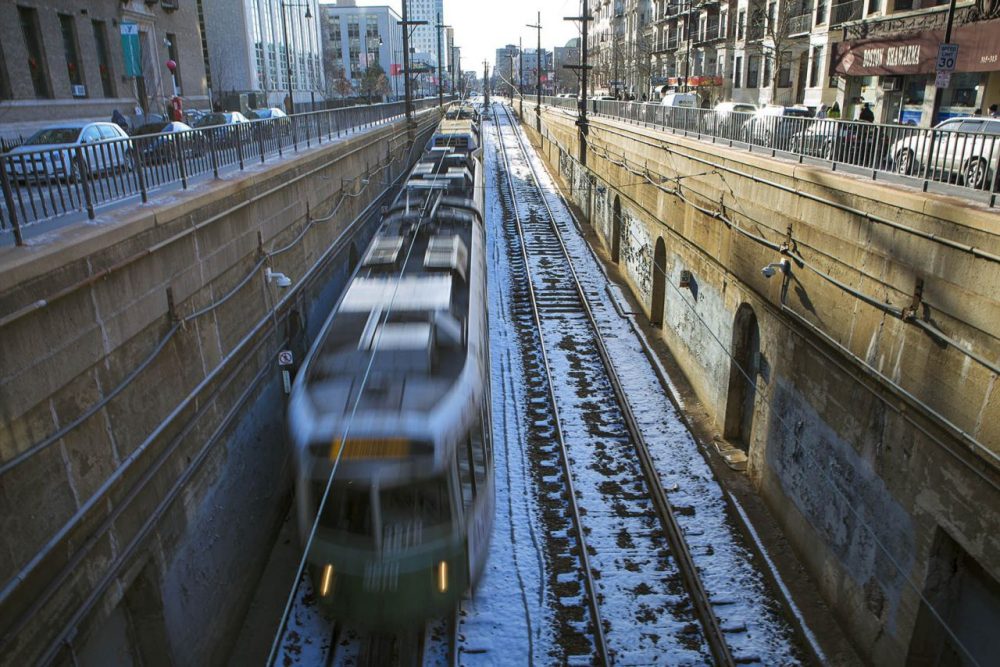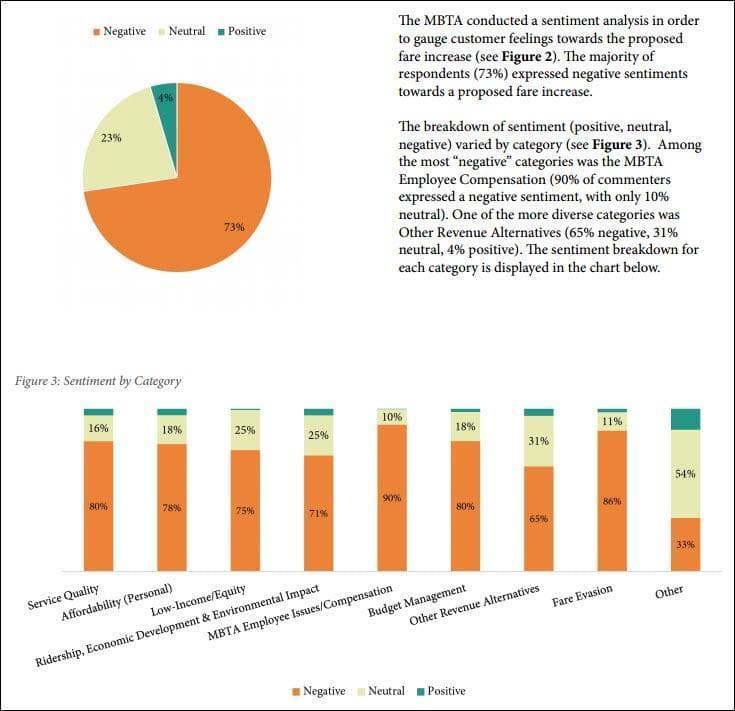Advertisement
MBTA Board OKs Fare Hikes Averaging 9.3 Percent

Facing a $138 million budget deficit and a $7 billion maintenance backlog, the MBTA will ask riders to pay more, beginning this summer.
With their voices drowned out by chanting protesters, the transit agency's fiscal and management control board voted unanimously Monday to raise fares by an average of 9.3 percent across the system, as of July 1.
However, how much your fare will increase will vary based on which mode you use and whether you choose to pay for individual rides or for a pass.
For example, Monthly Link passes — which allow for unlimited travel on all subway and bus routes — will increase 12.7 percent, from $75 to $84.50.
"While fare increases are never popular, our view is to try to get a reasonable amount that we can to … make an improvement and step up in the quality of service," board Chair Joseph Aiello said.
Added MBTA Chief Administrator Brian Shortsleeve later: "The commitment we’re taking today is that every dollar of this fare increase is going to be used to improve service.”
The proposal approved Monday is a slight adjustment of one package of fare hikes that had been offered by the MBTA board. That plan would have raised fares by an average of 9.7 percent across the system.
Here are the modifications to that plan, so-called "Option 2":

The new proposal drops the price for CharlieTicket single bus rides, from $2.10 to $2, and also mitigates some hikes for students and seniors.
Under the earlier plan, for instance, a monthly student pass would have increased from $26 to $32; the new package raises the pass price to $30. Additionally, the T says it will offer a "bulk discount" of $1 off each pass to students from eligible schools buying more than 1,000 passes a month.
Another change: The cost of a trip in The RIDE's premium service area would have risen 10 percent, to $5.50, under the earlier plan; the proposal approved Monday raises the price by 5 percent, to $5.25.
Secretary of Transportation Stephanie Pollack, speaking after the vote, said the package of fare hikes will bring in about $42 million in new revenue next year.
And the control board voted to not have another fare increase until 2019.
How We Got Here
The T's control board has been laying the groundwork for this new round of hikes for months — arguing that more revenue will allow the MBTA to invest more in updating its core infrastructure and, in turn, improve service.
But riders have said they shouldn't have to pay more for a system that is unreliable, and that the T should improve service and look for other ways to increase revenues and cut costs first, before increasing fares. Some also expressed concern that the hikes would have an disproportionate impact on the T's poorest riders.
Others believe the T should cap any fare increase at 5 percent — a cap advocates say was written into a 2013 transportation finance law.
The law says the T "shall not increase fares at intervals of less than 24 months or at an annual rate greater than 5 percent."
The Patrick administration, which raised fares an average of 5 percent in 2014 — the last time fares were hiked -- interpreted that as a cap of 5 percent every two years. And advocates say that was the intent of the law.
Advertisement
But the Baker administration is interpreting it as a 10 percent cap, and argues that it doesn't apply to passes since they aren't technically "fares."
The T initially put two fare hike proposals out for public comment — a modification of the one they adopted Monday and one that would've raised fares an average of 6.7 percent across the system.
The T collected nearly 3,000 comments on the two proposals -- at public meetings, via an online form, email, mail and phone. It classified nearly 75 percent of them as having a "negative sentiment" toward the proposals.

The board that voted to increase fares Monday was created last summer after a series of severe snowstorms crippled the transit system.
In the seven-plus months since it took over, the fiscal management and control board has focused on closing the T's budget deficit by increasing revenue and cutting expenses.
Just last week the board voted to end late-night weekend service, less than two years after it was first launched. The T says the move could save the agency $10 million to $14.8 million next fiscal year.
With reporting by WBUR's Abby Elizabeth Conway, Zeninjor Enwemeka and Benjamin Swasey
Correction: Due to an editing error, an earlier version of this post incorrectly attributed a quotation to Joseph Aiello, of the T board. We regret the error.
This article was originally published on March 07, 2016.